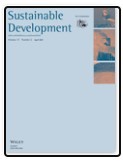Addressing Climate Resilience in the African Region: Prioritizing Mental Health and Psychosocial Well-Being in Disaster Preparedness and Response Planning for Mainstream Communities and Migrants

This is an open-access article.
Climate change represents a complex and multifaceted challenge for health systems, particularly in the African region, where the research has predominantly focused on physical health impacts while overlooking critical mental health dimensions. Our central hypothesis is that integrating culturally adapted mental health and psychosocial support (MHPSS) into climate resilience frameworks and disaster response planning will significantly reduce psychological distress (e.g., anxiety, depression, and trauma) and enhance adaptive capacities among both mainstream and migrant communities in disaster-prone African regions. This rapid review methodology systematically explores the intricate relationships between climate change, mental health, and migration by examining the existing literature and identifying significant information gaps. The key findings underscore the urgent need for targeted research and strategic interventions that specifically address mental health vulnerabilities in the context of climate change. This review highlights how extreme weather events, environmental disruptions, and forced migration create profound psychological stressors that extend beyond immediate physical health concerns. This research emphasizes the importance of developing comprehensive adaptation strategies integrating mental health considerations into broader climate response frameworks. Recommendations emerging from this assessment call for immediate and focused attention on developing specialized research, policies, and interventions that recognize the unique mental health challenges posed by climate change in African contexts. We also note the current limitations in the existing national adaptation plans, which frequently overlook mental health dimensions, thereby underscoring the necessity of a more holistic and nuanced approach to understanding climate change’s psychological impacts. In this exploratory study, we intended to provide a crucial preliminary assessment of the complex intersections between climate change, mental health, and migration, offering valuable insights for policymakers, researchers, and healthcare professionals seeking to develop more comprehensive and responsive strategies in an increasingly challenging environmental landscape.







